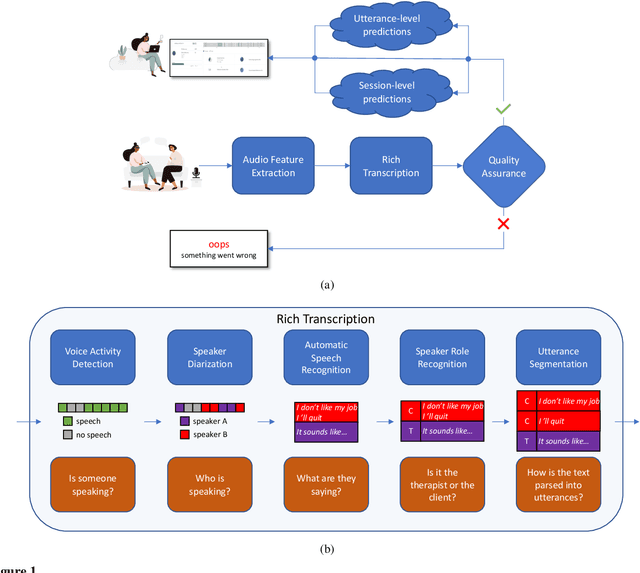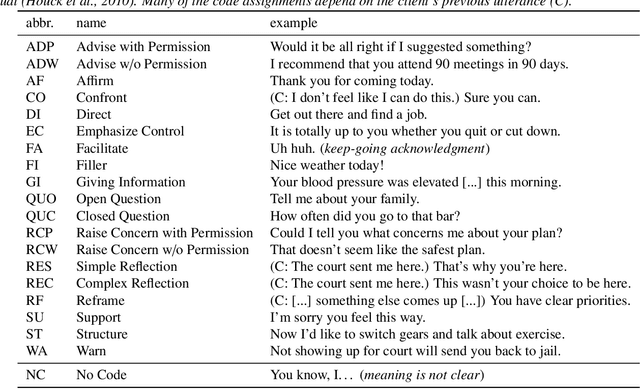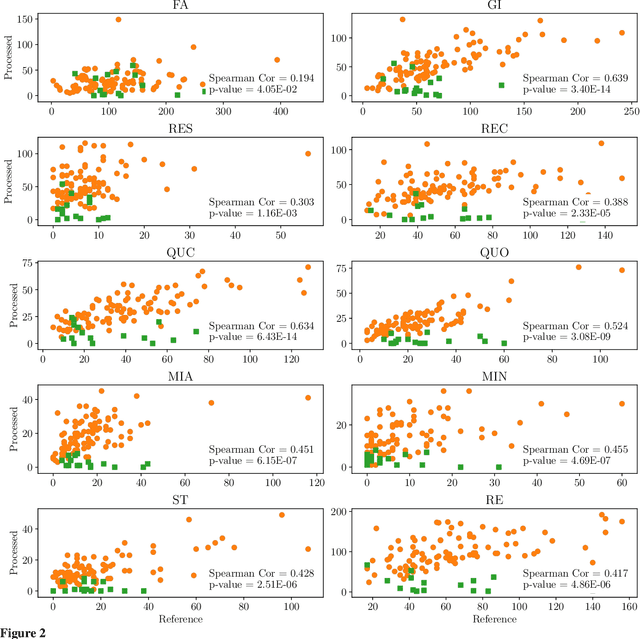James Gibson
"Am I A Good Therapist?" Automated Evaluation Of Psychotherapy Skills Using Speech And Language Technologies
Feb 22, 2021



Abstract:With the growing prevalence of psychological interventions, it is vital to have measures which rate the effectiveness of psychological care, in order to assist in training, supervision, and quality assurance of services. Traditionally, quality assessment is addressed by human raters who evaluate recorded sessions along specific dimensions, often codified through constructs relevant to the approach and domain. This is however a cost-prohibitive and time-consuming method which leads to poor feasibility and limited use in real-world settings. To facilitate this process, we have developed an automated competency rating tool able to process the raw recorded audio of a session, analyzing who spoke when, what they said, and how the health professional used language to provide therapy. Focusing on a use case of a specific type of psychotherapy called Motivational Interviewing, our system gives comprehensive feedback to the therapist, including information about the dynamics of the session (e.g., therapist's vs. client's talking time), low-level psychological language descriptors (e.g., type of questions asked), as well as other high-level behavioral constructs (e.g., the extent to which the therapist understands the clients' perspective). We describe our platform and its performance, using a dataset of more than 5,000 recordings drawn from its deployment in a real-world clinical setting used to assist training of new therapists. We are confident that a widespread use of automated psychotherapy rating tools in the near future will augment experts' capabilities by providing an avenue for more effective training and skill improvement and will eventually lead to more positive clinical outcomes.
Multi-label Multi-task Deep Learning for Behavioral Coding
Nov 05, 2018



Abstract:We propose a methodology for estimating human behaviors in psychotherapy sessions using mutli-label and multi-task learning paradigms. We discuss the problem of behavioral coding in which data of human interactions is the annotated with labels to describe relevant human behaviors of interest. We describe two related, yet distinct, corpora consisting of therapist client interactions in psychotherapy sessions. We experimentally compare the proposed learning approaches for estimating behaviors of interest in these datasets. Specifically, we compare single and multiple label learning approaches, single and multiple task learning approaches, and evaluate the performance of these approaches when incorporating turn context. We demonstrate the prediction performance gains which can be achieved by using the proposed paradigms and discuss the insights these models provide into these complex interactions.
 Add to Chrome
Add to Chrome Add to Firefox
Add to Firefox Add to Edge
Add to Edge